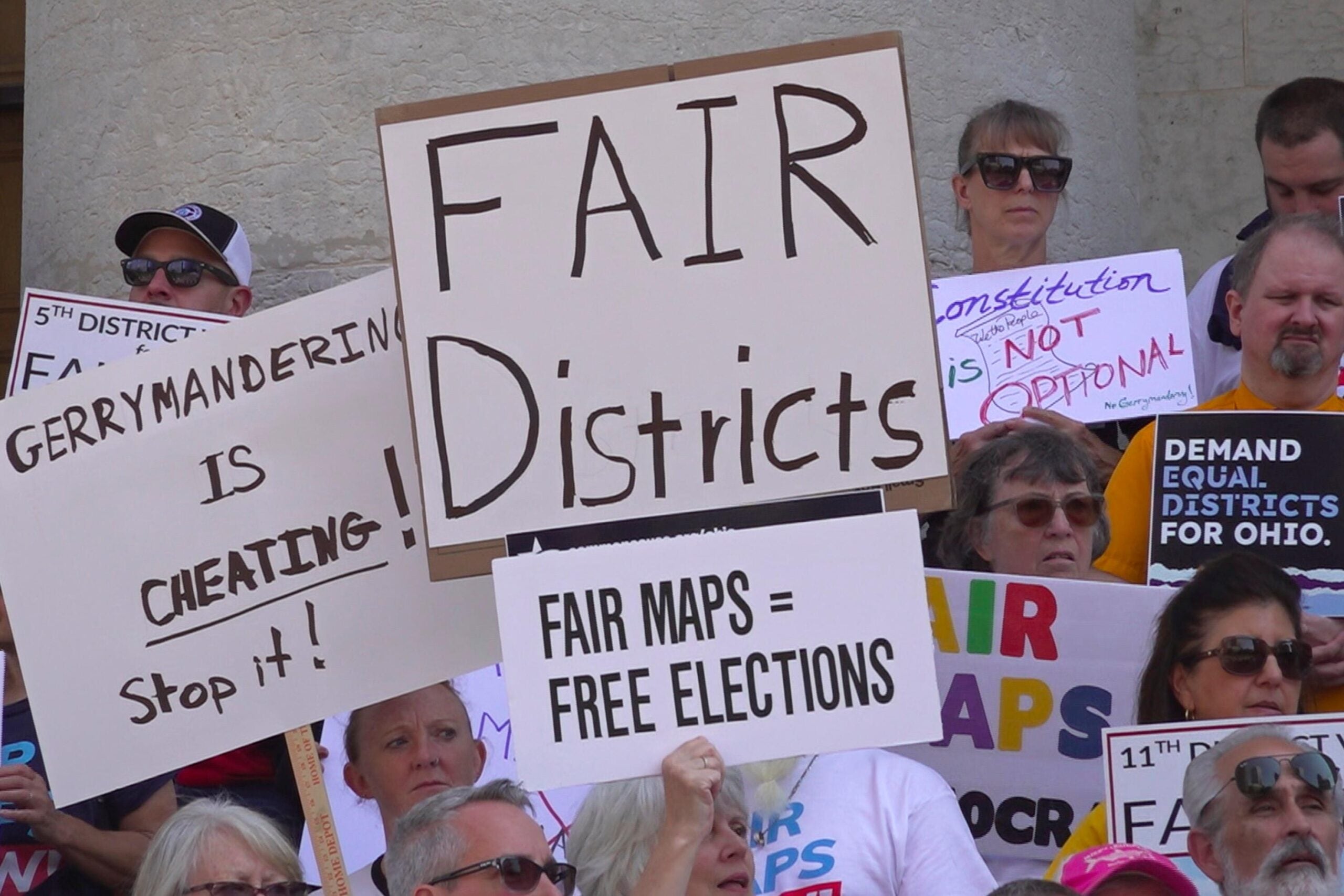State taxpayers are funding attorneys representing both Republican and Democratic state senators named in a redistricting lawsuit before the Wisconsin Supreme Court. Contracts obtained by WPR show attorneys are charging a minimum of $260,000 per month.
There are currently four law firms representing senators named in a lawsuit asking the state’s highest court to declare current Republican-drawn voting maps unconstitutional. Petitioners in that suit want to force all 17 state senators to run for office next fall under new voting maps. In that scenario, all 132 state lawmakers would be up for election in the same cycle.
On the Republican side, Senate Majority Leader Devin LeMahieu, R-Oostburg, and Assembly Speaker Robin Vos, R-Rochester, signed contracts with Lehotsky Keller Cohn LLP of Washington D.C.; Consovoy McCarthy PLLC of Arlington, Virginia; and Bell Giftos St. John LLC of Madison, to represent 12 GOP senators named in the suit.
News with a little more humanity
WPR’s “Wisconsin Today” newsletter keeps you connected to the state you love without feeling overwhelmed. No paywall. No agenda. No corporate filter.
LeMahieu was not available for comment on this story. Staff with Vos’ office did not respond to a request for comment.
Lehotsky Keller Cohn LLP has a fixed fee of $160,000 per month “during each month while a lawsuit is pending that challenges the existing Wisconsin State Assembly and Wisconsin State Senate district lines” plus out-of-pocket costs. The contract specifies that fees for representation will not exceed $870,000.
Consovoy McCarthy PLLC is charging a flat fee of $100,000 per month “until litigation and appeal activities cease” with total fees charged through August 14, 2024 not to exceed $965,000. The firm specifies its representation will be for litigation before the Wisconsin Supreme Court and, “if requested and applicable, on appeal to the U.S. Supreme Court.”
Bell Giftos St. John LLC will charge an hourly rate of $450 for attorney time and another $150 per hour if paralegal services are required.
On the Democratic side, Sen. Tim Carpenter, D-Milwaukee, Sen. Chris Larson, D-Milwaukee, Sen. Jeff Smith, D-Brunswick and Sen. Mark Spreitzer, D-Beloit, signed a contract with Pines Bach LLP of Madison.
During the last court battle over redistricting, Democratic lawmakers intervened in the case and used campaign money to pay for private attorneys. The lawmakers ultimately withdrew from the lawsuit. At the time, Pines Bach founder Lester Pines told the Milwaukee Journal Sentinel it became apparent the Assembly Democratic Campaign committee would be “far outstripped” by the money available to Republican lawmakers using state funds for private attorneys in the case. Pines did not respond to an interview request for this story.
Pines Bach LLC will charge between $200 per hour and $300 per hour for two attorneys who “are primarily responsible” for representing the Democratic lawmakers. The contract states other fees may be assessed, such as $150 per hour for paralegal work and $125 per hour for work performed by the firm’s law clerks.
The Pines Bach LLC contract requires “an advance payment in the amount of $50,000 for fees and costs to be incurred.”
All fees incurred by senators from both parties will be paid with taxpayer funds by the Wisconsin State Senate.
The authority to use those public funds on senators named in the suits comes from two main sources. The 2023-2024 Wisconsin State Senate Policy Manual allows for senators from the majority and minority parties to obtain outside legal representation.
Also, in January, the State Senate Committee on Senate Organization approved a motion “to retain and hire legal counsel to represent the senate or the legislature” in matters affecting constitutionality of state statutes or redistricting. The motion specifies LeMahieu “shall approve all financial costs and terms of representation.” The only no votes on the motion came from Senate Minority Leader Melissa Agard, D-Madison, and Smith, who is one of the Democratic senators named in the redistricting suits.
According to records tracked by WisPolitics, Republican lawmakers spent nearly $14.3 million in taxpayer funds on private attorneys between Jan 1, 2019 and Dec. 31, 2022 on election law cases and court battles over Democratic Gov. Tony Evers’ stay-at-home order during the early months of the COVID-19 pandemic.
Agard told WPR she requested and received approval from the State Senate Chief Clerk to spend the $50,000 on private representation for her five members.
“Now, it appears that the Republican members of the Senate have hired a number of different attorneys,” Agard said. “I’m not sure how it is that they are engaging, but my understanding is that they have also hired attorneys to argue against the lawsuit as opposed to just represent the people who have been named in the lawsuit.”
Attorneys for the Republican senators are arguing there is no basis for the state Supreme Court to overrule its 2022 ruling, which adopted voting maps drawn by the Republican controlled Legislature. Meanwhile, attorneys representing Democratic Senators are arguing current maps violate the Wisconsin constitution and the Supreme Court should require new maps to be drawn.
The lawyers for Republican and Democratic senators have also taken different tacks on whether liberal Justice Janet Protasiewicz must recuse herself from the redistricting cases because she called GOP maps “rigged” while campaigning for her seat.
GOP lawyers cite the U.S. Constitution’s Due Process Clause of the Fourteenth Amendment “does not allow a judge to sit on a case when her participation creates a serious risk of actual bias or prejudgement of the merits.”
Democrats’ attorneys argue that “Saying that the current maps are unfair, rigged, and gerrymandered is commenting on the political reality.”
For more on the history of redistricting in Wisconsin and how it impacts political power in the state, check out WPR’s investigative podcast series, “Mapped Out.”
Wisconsin Public Radio, © Copyright 2026, Board of Regents of the University of Wisconsin System and Wisconsin Educational Communications Board.





